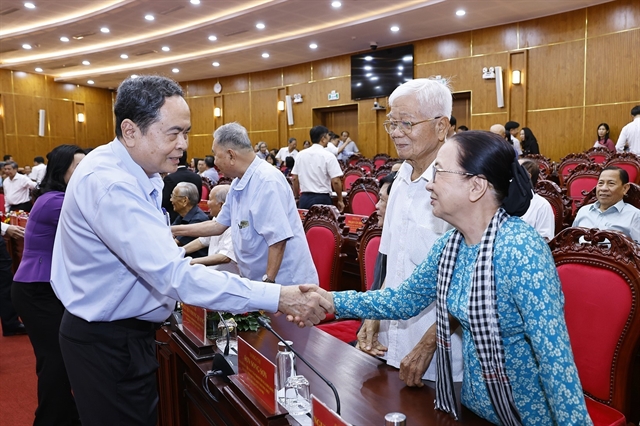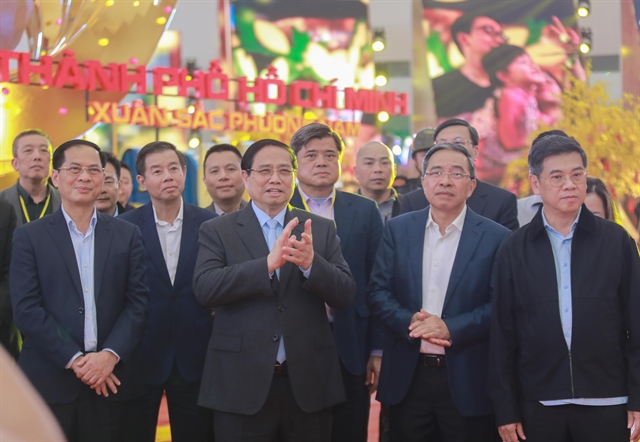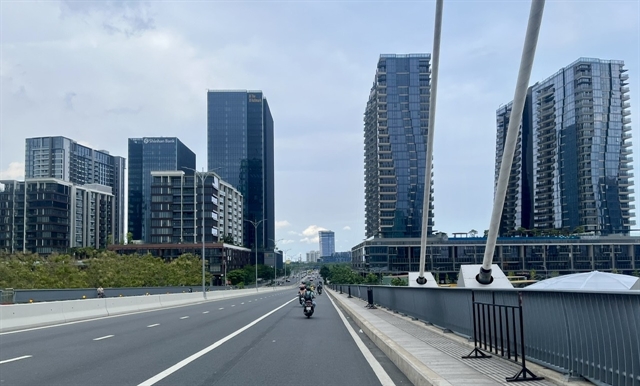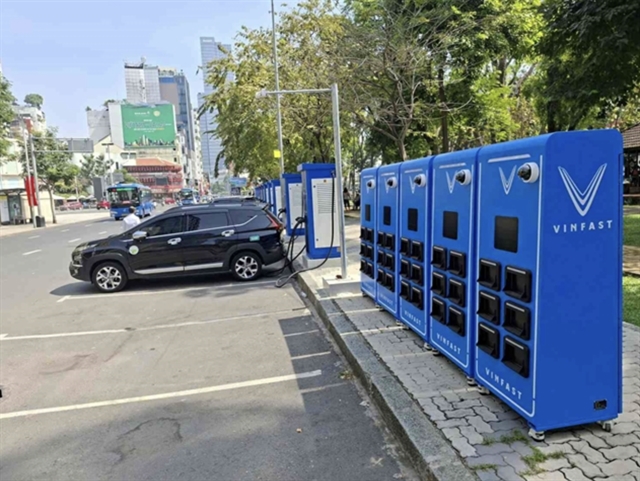 Society
Society
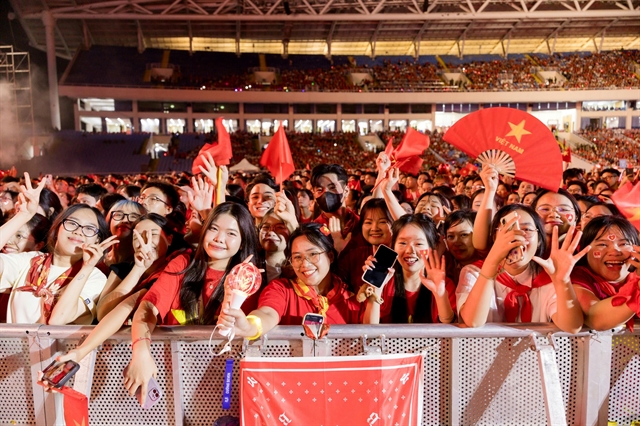
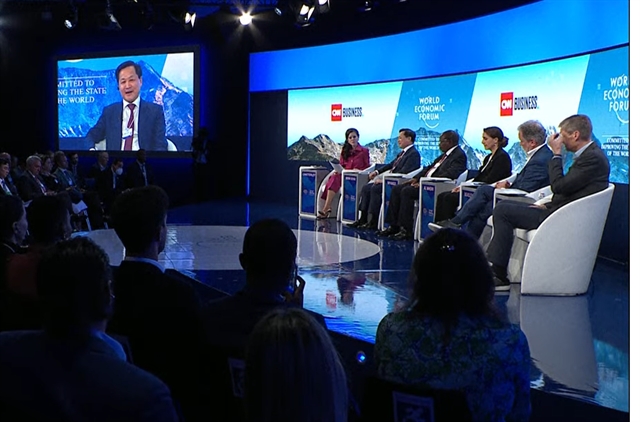
|
| Deputy Prime Minister Lê Minh Khái delivers his opening remarks at the “Averting a Global Food Crisis” session of the World Economic Forum annual meeting in Davos-Klosters, Switzerland on Monday. VNA/VNS Photo |
DAVOS-KLOSTERS - Deputy Prime Minister Lê Minh Khái on Monday proposed the establishment of a food innovation hub for Southeast Asia in Việt Nam as he addressed a session of the World Economic Forum annual meeting.
Khái was speaking at the “Averting a Global Food Crisis” meeting, a panel discussion with World Food Programme Executive Director David Beasley, UAE Climate and Environment Minister Mariam Mohammed Saeed Al Mheiri, Tanzania’s Vice President Philip Isdor Mpango, and CEO of the Swiss agriculture company Syngenta, J Erik Fyrwald.
Delivering the opening remarks, the Vietnamese Deputy PM addressed current food shortages and their severity in a number of countries.
“As you know we are going through a crisis on top of a crisis,” he said.
“The double impact of the COVID-19 pandemic and geo-political intentions in some countries have caused some unprecedented impacts on the supply and prices of the global food chain. It has left a direct impact on people’s lives, leaving millions of people facing food shortages.
“Climate change, digital transformation and green consumption and enhanced social responsibility have created multi-dimensional impacts on the global food system.”
Speaking from Việt Nam’s past experience as a country that had to import food but now is one of the important contributors to global food security, Khái proposed five recommendations to help alleviate food shortages around the world and sustain the global food system.
He said: “First, since food security concerns all people, it needs a holistic, multidimensional, multi-objective, long-term approach towards a self-reliant, inclusive and sustainable food system.
“At the moment it’s necessary to provide humanitarian support to a number of countries facing food shortages. And it’s also necessary to restore the global food supply system and curb the trade barriers in providing long-term food supply.
"Second, since food shortage is a global issue, international cooperation needs to be increased to promote the role of multidimensional organisations in food security. Countries need to work together in a tripartite mechanism to restore the global food supply system.
"Third, solutions related to food security must ensure social inclusion and involve people’s responsibility. People should be put at the centre and considered the ultimate goal of all food security policies.
“We need to ensure the transition of food production towards an equitable and fair system that takes into consideration the interest of the disadvantaged and the vulnerable.”
He added, fourth, it’s necessary to build an agro-ecological system with the participation of all stakeholders in the global food system.
Fifth, countries need to change mindsets and create all conditions to develop and promote a modern and sustainable agricultural sector.
“We need to take advantage of the fourth industrial revolution, apply digital technology, high technology to create a smart, sustainable agricultural value chain,” he said.
He concluded his remarks by proposing the formation of a food hub for Southeast Asia.
“As a country that has certain advantages in terms of agriculture and is moving towards digital transformation in agricultural production, we expect that countries, international organisations, and WEF members, will support the establishment of a food innovation hub for Southeast Asia, based in Việt Nam,” he said.
He also called on countries and international organisations to collaborate with Việt Nam to come up with measures to respond to climate change, and build an agricultural sector that meets domestic and international demands. VNS

